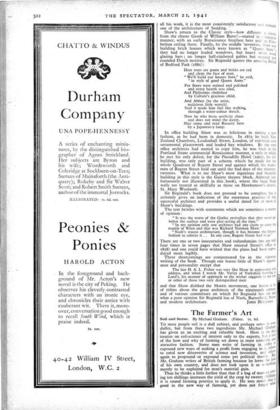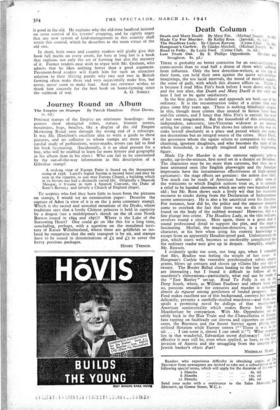The Farmer's Art
Soil and Sense. By Michael Graham. (Faber. 75. 6d.
To most people soil is a dull subject, and perhaps sense is even duller, but from these two ingredients Mr. Michael Graham has given us an exciting and valuable book.. Here is no dug treatise on soil-science of interest only to the experts, but a rale of the how and why of farming set down in most romantic and attractive fashion. Some men write of farming in order 10 expound new ways of making'a profit from engaging in it, other to extol new discoveries of science and invention, and othell' again to propound• or expound some pet political theorY. Mr. Graham writes of British farming because he loves the 130` of his own country, and does not look upon it as somethini merely to be exploited for man's- material gain. Thus he thinks a little farther than that if a bag of manure 0:151- ing ten shillings increases the yield of the crop by twenty ,hillings,.' it is sound farming practice to apply it. He sees much tha" good in the new way of farming, yet does-: not forget Whal
is good in the old. He explains why the old-time landlord insisted on some control of his tenants' cropping, and he rightly urges that any new system of land-management in this country shall retain this control, which he describes as the main virtue of the old one.
In short, both town and country readers will gladly give this book full marks on every count, for here at long last is a book that explains not only the art of farming but also the mystery of it. Farmer readers may wish to argue with Mr. Graham, who admits that he likes nothing better than a good argument. Pavement-bred readers will thank him for such an attractive solution to their lifelong puzzle why two and two in British farming often make three and very occasionally make five, but never, never seem to make four. And one reviewer wishes to thank him sincerely for the best book on home-farming since







































 Previous page
Previous page